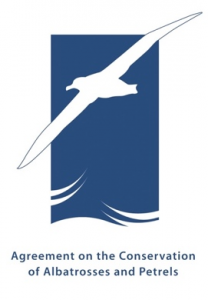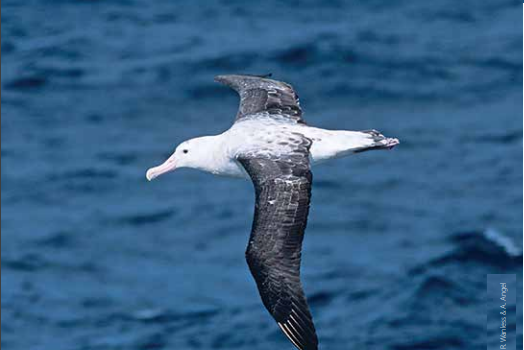The conservation crisis remains the highest priority at ACAP’s Seventh Meeting of the Parties (MoP7)
May 25th, 2022 The Seventh Meeting of the Parties (RdP7) to the Agreement on the Conservation of Albatrosses and Petrels (ACAP) has concluded, in agreement with all Parties, that much work remains to be done to address threats to populations of Albatrosses and Petrels. sea birds. The meeting was chaired by Gaia Puleston from Australia.
The Seventh Meeting of the Parties (RdP7) to the Agreement on the Conservation of Albatrosses and Petrels (ACAP) has concluded, in agreement with all Parties, that much work remains to be done to address threats to populations of Albatrosses and Petrels. sea birds. The meeting was chaired by Gaia Puleston from Australia.
In her welcoming remarks to RdP7, Her Excellency The Honorable Barbara Baker AC, Governor of the State of Tasmania, reflected on the task they face, saying: “The world watches as you work together to conserve endangered albatrosses and petrels. The future of these species depends on their collective efforts. I hope that all participants in the Seventh Meeting of the Parties can successfully ensure that a solid foundation is laid on which ACAP can continue to build in the next triennium.”
In 2019, the ACAP Advisory Committee declared a conservation crisis, which continues to be the most serious threat facing the 31 protected species, with thousands of albatrosses, petrels and shearwaters dying each year as a result of fishing operations. the fisheries.
Implementation of ACAP Best Practice recommendations on seabird bycatch mitigation by ACAP Parties, non-Party Range States and, crucially, Regional Management Organizations was identified Fishing (RFMO) as a critical element for the conservation of these majestic seabirds.
ACAP has developed a comprehensive series of Best Practice Recommendations guidelines and fact sheets that include proven mitigation measures that can be implemented by coastal states and countries fishing in distant waters.to reduce seabird bycatch. These are available in multiple languages and can be accessed through the ACAP website.
Encouragingly, a growing number of RFMOs and other bodies have adopted ACAP Best Practice measures in their operations, leading to a reduction in seabird bycatch as a result of longline and trawling.
Progress was also recorded in addressing seabirds land-based threats, particularly with programs aimed at eradicating invasive feral species.
Dr. Michael Double, who chairs the Advisory Committee (and is also the Vice-Chair of MOP7), highlighted in his report to Parties the compelling need to engage with RFMOs and other organizations to adopt ACAP Best Practices for fisheries in order to prevent albatross and petrel populations from further decline.
“The Advisory Committee continues to recommend that Parties, Range States and RFMOs promote and implement best practice seabird mitigation measures; to improve seabird bycatch data collection and reporting ; implement priority monitoring and carry out follow-up studies; and continue to implement invasive feral species eradication schemes at breeding sites,” he stated.
Improving this critical information is vital for the development of specific conservation priority actions going forward.
COVID-19 pandemic impact on ACAP activities was noted, so progress on some of them slowed down. Now that restrictions around the world have been eased, it is hoped that ACAP will be able to resume its key activities, including the resumption of its grant and internship program and continued contact with RFMOs.
ACAP Executive Secretary Dr Christine Bogle commented that “this Meeting of the Parties reaffirmed the commitment of ACAP Parties and partner organizations to seek to protect these unique birds from the threats they still face”.
Background
Parties (member countries) of ACAP and other states
ACAP currently has 13 member countries (known as Parties). Its objective is to achieve and maintain a favorable conservation status for albatrosses and petrels. This effort has the support of various non-Party States and non-governmental organizations (NGOs). Currently, ACAP lists 31 species of albatrosses and petrels, most of which are classified as globally threatened.
The Parties are Argentina, Australia, Brazil, Chile, Ecuador, Spain, France, Norway, New Zealand, Peru, United Kingdom, South Africa, Uruguay. Non-Party Range States with jurisdiction over breeding sites for ACAP-listed species are the US, Japan and Mexico. Non-Party States that regularly participate in ACAP meetings are Canada and Namibia. https://www.acap.aq/en/resources/parties-to-acap
ACAP Structure
Agreement Secretariat headquarters are located in Hobart, Tasmania, Australia. It consists of an Executive Secretary, Dr. Christine Bogle from New Zealand, a Science Officer, and an honorary Chief Information Officer based in Cape Town, South Africa. ACAP is governed by regular Meeting of the Parties (MoP) Sessions, normally held every three years. The Meeting of the Parties is advised by an Advisory Committee (AC) that normally meets twice every three years. The Advisory Committee is supported by three Working Groups, the Seabird Bycatch Working Group (GdTCS), which deals primarily with threats at sea, Stocks and Working Group Conservation Status (GdTPEC ), which deals primarily with threats on land, and Taxonomy Working Group (WGTT), which reviews the taxonomic status of albatrosses and petrels.
¿What is marine bycatch?
Bycatch, or bycatch, in longline fisheries occurs when birds attack baited hooks, mostly during setting; then they get caught in them and drown when the line sinks to the fishing depth. In trawl fisheries, birds feeding on discards behind vessels can strike trawl lines, trawl lines and paravanes and be injured. In the event that they collide with the towing cables, the birds can be pulled underwater when their wings become entangled in them; they can also become entangled in nets during casting and retrieval.
What is a mitigation measure?
A mitigation measure is defined as a modification to the design of fishing equipment or operations to reduce the probability of taking seabirds.
Source: ACAP news
